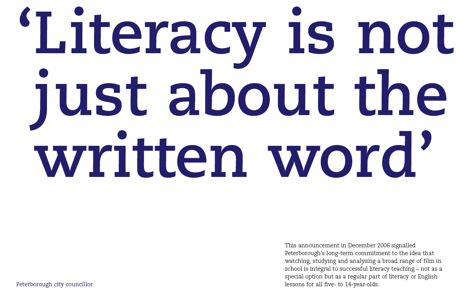
In my past English classes, we explored hidden/deeper meanings within assorted texts, ranging from short stories, books, and poems and graded on form, grammar, flow, and relevance but was never allowed to incorporate personal experience or thought. I always enjoyed the challenge of writing yet struggled with my grammar.
Likewise, in his essay, The Subject in Discourse, John Clifford poses the following critical questions for the education system and future educators, such as myself, should continuously consider:
What do us teachers of composition hope to accomplish? Are we intent on developing in our students the literacy skills and attitudes necessary to succeed in college and beyond, or do we hope to empower them with critical habits of mind, with a skeptical intelligence, with an awareness of themselves as potential actors in a sociopolitical context? Or, more pointedly, do we want to fulfill our contractual obligations to the university and the state by focusing primarily on rhetorical competence, syntactic clarity, and other communicative conventions highly valued in business, industry, and government; or do we dare to encourage oppositional thinkers, social activists, and resistant readers and writers?
It wasn’t until I wrote about personal experience in an online blog that I found my voice and the love for writing. Inferring from Peter Elbow’s essay, Some Thoughts on Expressive Discourse: A Review Essay, my “experience-based” writing was ultimately my “building block” in making the necessary connection between literacy and science, math, reading, language arts, social studies, music, art, physical education, etc. In other words, literacy instruction is vitally important to be taught in ALL content areas because literacy is the core to understanding, conveying, speaking, writing, and reading any subject.

Scientists explore and discover but I never realized writers do just the same. That is, until this class. In comparison, scientists use the scientific method in order to explain, describe, and inform via experiments while writers do the same through expository writing. In the same sense, the investigations and analysis of material culture are parallel to those performed by biologists/chemists/scientists searching for answers or a cure. Additionally, an article by K. Kris Hirst, further exposes the relationship between science and exposition by examining whether or not anthropology — the study of human societies and cultures and their development — is a science or a humanity.
When exploring a subject/topic with an emic approach, it is impossible to completely push aside all personal feelings and experiences. Therefore, traces of persuasion will always be found throughout the writing, regardless of how much and how hard expository writers try. Unlike expository writing sometimes, however, students can “discover the power of language” through rhetorical writing. Ann E. Berthoff continues in her essay, Learning the Uses of Chaos,
If we can make the composition classroom a forum, a culture circle, a theatre, a version of Tolstoy’s armchair aswarm with children questioning, talking and arguing – if the composition classroom is the place where dialogue is the mode of making meaning, then we will have a better chance to dramatize not only the fact that language itself changes with the meanings we make from it and that its powers are generative and developmental, but also that it is the indispensable and unsurpassable means of reaching others and forming communities with them. The ability to speak is innate, but language can only be realized in a social context. Dialogue…is essential to the making of meaning and thus to learning to write. The chief use of chaos is that it creates the need for that dialogue.
The relationship between exposition and rhetoric composition exist in the pedagogical process of what writing is for and what writing does: “helping students to read and write and think in ways that both resist domination and exploitation and encourage self-consciousness about who they are and can be in the social world” (The Subject in Discourse by John Clifford, page 872).



Excellent blog-post. I also have had the same experiences in other courses, not necessarily English though. I entered my first English course at Georgia State not knowing what a preposition was, so theoretical approaches were the last of my concerns. Now, entering my senior, having had a number of upper level English courses I can tend more to the “experienced based approach.” you spoke of.
I think you did a wonderful job of highlighting the importance of the relationship of exposition and rhetoric composition. Once again great blog post!